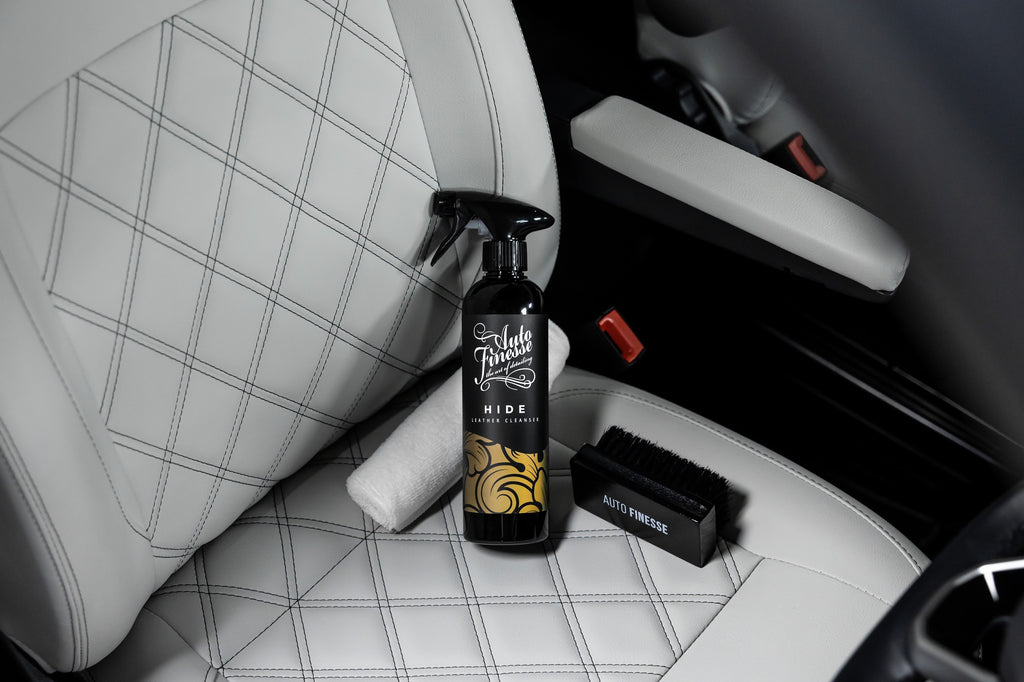The Evolution Of Detailing
You all know us (Auto Finesse) as a car care supplier, but do you know how we started? Well, let me give you a brief rundown. Our bossman, or head honcho, James Batty, started cleaning cars professionally in 1999 and stepped into detailing in 2006. In 2010 he started creating a few car care products, and now we're here, with a current product line of 156 items.



Well, that's how we've evolved, but how has detailing as a whole evolved? Well, grab yourself a cuppa and relax while we tell you. It all truly started when Karl Benz, Gottlieb Daimler, and Wilhelm Maybach patented the first ever car, back in 1886. You can't have a detailing phenomenon without the car, can you! Since then, there have been a number of pivotal points in the history of detailing. For example, the first hand-made wax was developed in Zurich, back in the 1930s, to protect antiques and lacquers. That is until the inventor realised it produced top results on car paint. It was really the 1990s, though, that car valeting products really took off, with the introduction of detailing clay and microfibre cloths coming from Sweden to Europe-wide.



Detailing, as it's known today, is still relatively new, and it continues to evolve at a rapid rate. Detailing a term that travelled across the pond from America in the UK really began around 2005, with high-end car valeters wanting to distance themselves from the cheap quick car washes that were starting to call their services valeting or "valet. In essence, detailing and valeting are fundamentally the same thing; it's cleaning a car. But the term detailing really helps define to the level of which the task is going to be completed. Detailing is much more than a valet, it goes deep into the condition of the paint and its overall finish. A valet would look for clean, whereas a detailer would look for clear as in a clear as glass reflection. Those early days also saw most good UK valeters board the (then) new DA bandwagon a 110v machine, complete with portal cable, that initially had to be imported from America. Something no seasoned detailer will miss - mostly for not having to lug its old 110v converter around. This evolution into machine polishing, in turn, surged the popularity of clay bars. A car must be clay barred of any surface contaminants before machine polishing. The clay bar essentially pulls road tar, and any other impurities found, from the paint's surface without damaging it. If you machine-polish a car without having performed a thorough clay barring, any contamination present will be picked up by the machine and swirled around the paintwork, causing scrapes and pigtails. This point in detailing history was a real revelation into the finishes that could be achieved. A good detail would often result in a better finish than that of the factory.



At around the same time, forums were home to the real rising stars in the industry, with many top detailers sharing, discussing and honing their skills from others, all over the country. Our head honcho we told you about earlier even learned a lot of his skills on those very forums and also shared many ideas, techniques and other insights, too. The showroom threads used to be filled with people pushing the boundaries of the standard in car care, with wash regimes spanning into upwards of five-hours, as well as brushes and solutions for every possible scenario; weather, hard-to-reach areas and car part-specific products. Then came the wheels off phase. Until then, professionals weren't really into taking parts off, or out of, the vehicle (beyond a set of floor mats). This stage really opened the flood gates as detailers got more and more trained, educated and experienced. The best ventured into new territory, stripping badges, grills, gills and even more being removed in the pursuit of machine polishing every possible square inch of the car.



The detailing journey is truly fascinating. Car enthusiasts (and some people who aren't) want their cars to be in the best condition, and a good detail gives that to them often resulting in a better result than out of the factory. We've seen brand new cars delivered with the orange peel faint orange peel, but orange peel, nonetheless. You don't expect that when you get a new car, but the intricate finish that a detailer strives for goes beyond that of a manufacturer, ensuring every part looks the best it possibly can. You can't do this job if you're not passionate; not necessarily passionate about the cars, but passionate about the incredible finishes and improvements that can be made. Seeing before and after examples is something that really makes us proud, like a car care company, and makes the detailer proud too. They've essentially improved on something a team of hundreds/thousands has produced and, of course, we're glad to help. Our tips, hints and products are helping people to achieve (to quote Borat) a great success, and that?s exactly why we do what we do.









